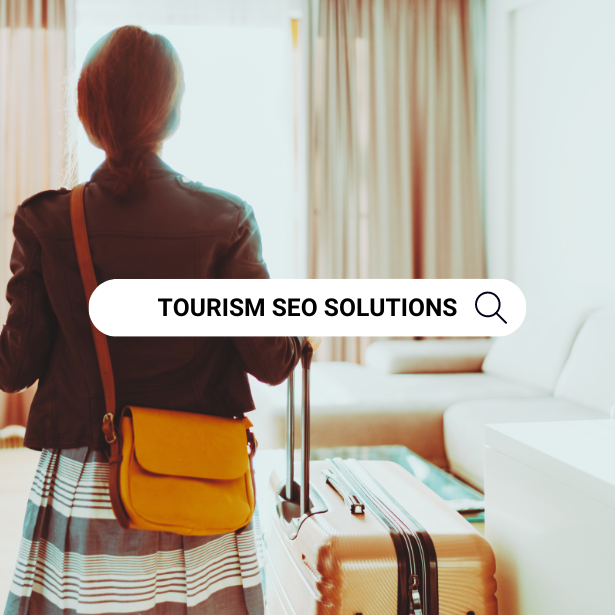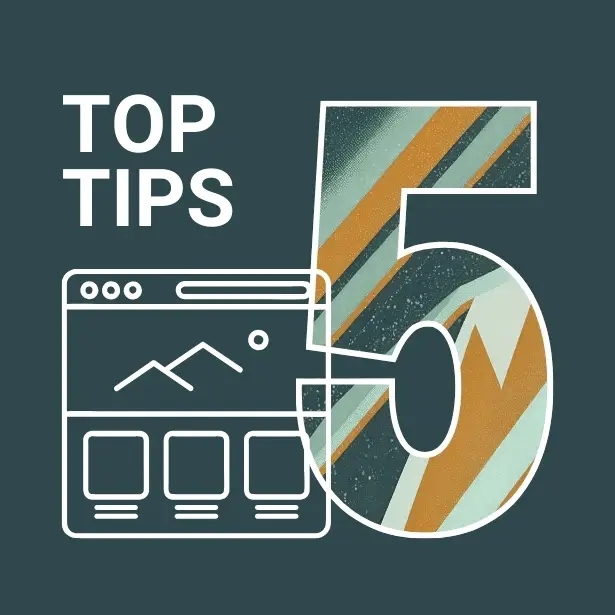Optimizing Your Tourism Website
You don’t need me to explain that attracting visitors to your website is crucial for converting interest into sales. However, Search Engine Optimization (SEO) is an essential tool in this effort that typically isn’t addressed until a website redesign. Redesigning a website through a lengthy RFP process can be a daunting task. Tourism leaders often wait years to secure the budget and resources needed. The pressure to fit every need and want into the scope is real, and the price tag often reflects the extensive list of requirements. But what if there was a way to maintain and enhance your website’s performance without waiting years for the next big redesign?

Creating Engaging, Relevant, and Timely Tourism Content
Modern SEO is about more than just keywords—it’s about providing relevant and timely content that meets audience needs. This means considering adding pages that aren’t connected to the main navigation of your website. Why? These users are entering in on a specific search term that inspire a page strategy built to qualify leads. Think of these as your ‘evergreen’ campaigns with marketing funnels based on the topic.
Research shows that websites on the first page of Google results have an average of 1,890 words on their landing pages, highlighting the need for comprehensive and relevant content to improve SEO performance.
Google
Travelers are constantly looking for up-to-date information about destinations, events, and seasonal activities. By regularly publishing content that aligns with these interests, you can improve your SEO rankings and keep your audience engaged. Your blog content should be timely and relevant to trends through your unique tone of voice. It’s not enough to try and be first on a hot topic; audiences want to receive information from a brand they trust.
RELATED: Tourism Digital Marketing Solutions
Using the Algorithm to Drive More Visitors
It’s important to remember that Google is a business. Therefore, they don’t necessarily want to promote your website and remove the user from their experience. Take a look at the real estate of an example results page below. AI provides curated answers from top sources and most of the first page is being purchased. It’s a common scenario. However, most brands aren’t leveraging the tools available like Google structured data markup to appear on a search results page. I often see brands spending marketing efforts on blog content without setting up framework to appear on mobile news apps.

Building High-Quality Backlinks to Enhance Credibility
It’s important to build relationships with other websites to enhance your site’s credibility and authority in search results. Backlinks from reputable websites signal to search engines that your content is valuable, helping to improve your site’s authority and rankings. In the tourism sector, partnerships with travel blogs, influencers, and local businesses can be particularly effective in building these links.
Leveraging Google My Business for Increased Visibility
Local SEO is critical for tourism websites, as many travelers search for accommodations, activities, and dining options near their destination. Optimizing your site for “near me” searches and ensuring that your business appears on local map results enhances your visibility. Google My Business (GMB) is an essential tool, offering a direct line to services in specific locations. Optimizing your GMB profile with accurate information, high-quality images, and frequent updates can drive more traffic to your website.
Unlocking SEO Performance Beyond Content
While many people associate SEO primarily with updating website content, the reality is that a significant portion of SEO performance hinges on technical optimization and off-page factors. Technical SEO involves optimizing the backend of your website to ensure it runs efficiently, loads quickly, and is easily crawled by search engines. This includes aspects like site speed, mobile optimization, and structured data.
With more travelers using smartphones to plan their trips, mobile optimization is no longer optional—it’s a necessity. A mobile-friendly website not only improves user experience but also boosts your SEO rankings. A freelance web developer or SEO specialist can ensure your site offers a seamless user experience that keeps visitors engaged.
53% of mobile users abandon a site that takes longer than three seconds to load, underscoring the importance of technical SEO in keeping visitors on your site.
Google
Using Data and Analytics to Drive Continuous Improvement
SEO isn’t a set-it-and-forget-it strategy; it requires continuous monitoring and optimization. By tracking key metrics such as organic traffic, bounce rates, and conversion rates, you can identify what’s working and where improvements are needed. My data services offer ongoing analytics support, offering insights and recommendations to keep your SEO strategy aligned with your business goals.







